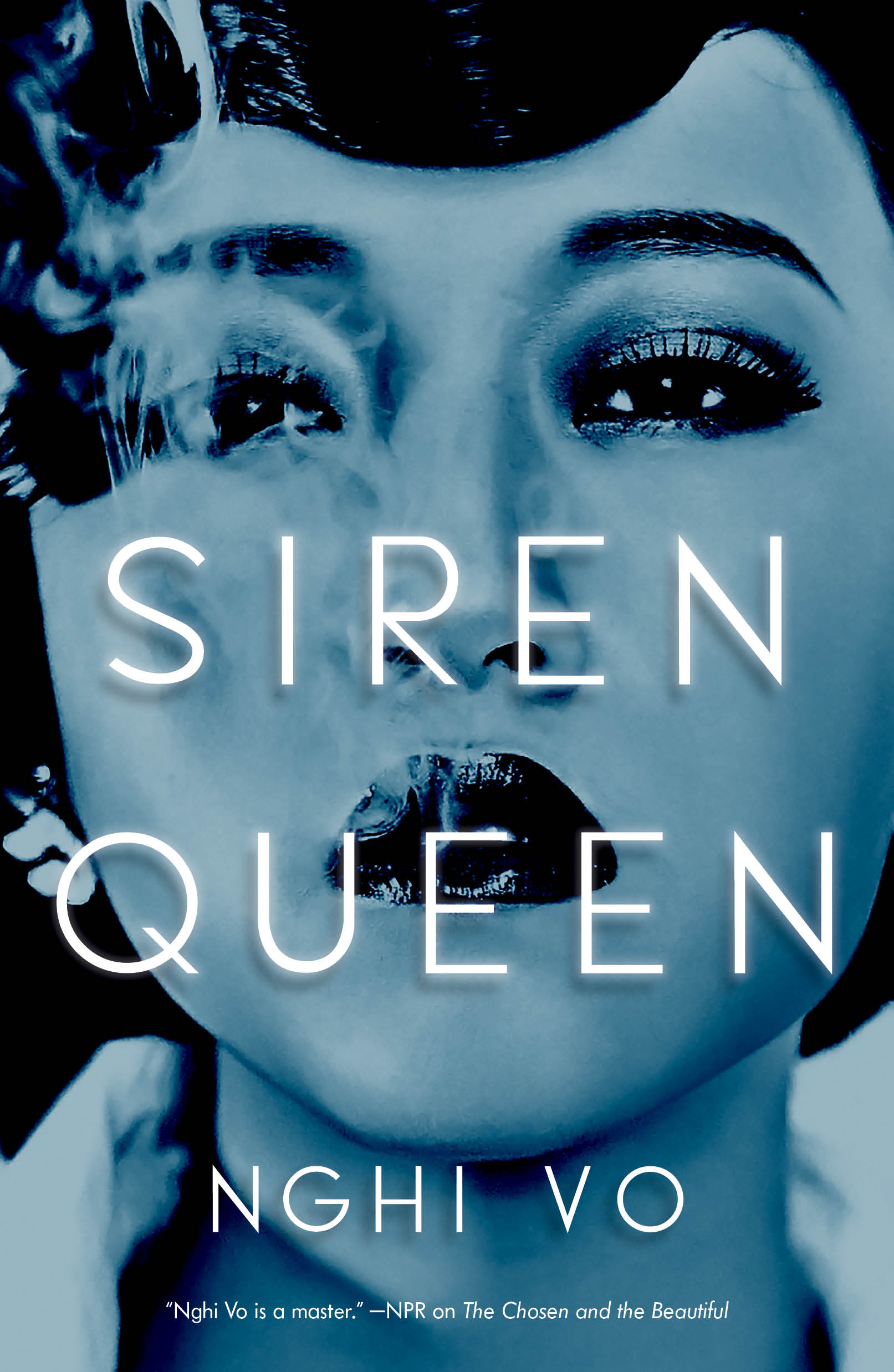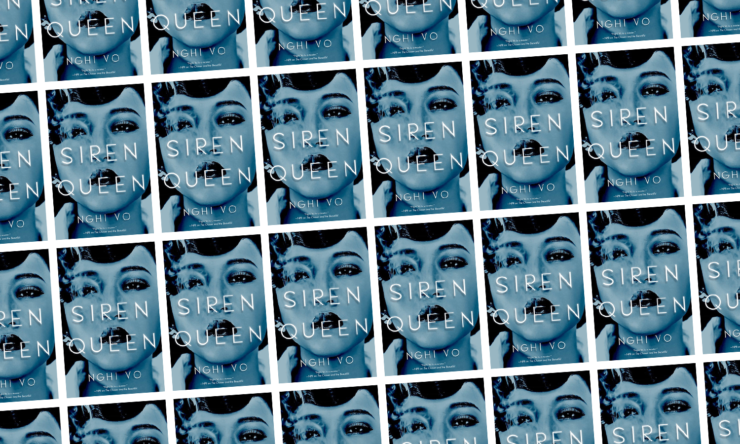Written like a memoir, Nghi Vo’s latest historical fantasy novel Siren Queen begins with a reflection on memory and truth and the fuzzy place where the two collide and break apart. Then our narrator, first known only as Sissy, the nickname her younger sister gives her, takes us back to before her Hollywood fairytale begins. Sissy’s infatuation with film starts in childhood, and as she stumbles into background and extra roles, becomes an obsession.
Our narrator learns quickly that there are two kinds of actors: the stars and the burnouts. The stars are the rarefied few who, through shrewdness or seduction or sheer luck, ascend to the heights of fame and fortune. Most flame out. Maybe they score a plum role or two, maybe they never make it out of the trenches. Maybe they end up on a sacrificial pyre or are hollowed out until there is nothing left but a smiling, nodding, human-shaped creature. Our narrator takes control of her narrative from the start. She sets her terms and forces those in power to accede to her will. She isn’t powerful, but neither is she powerless, and she is happy to exploit that difference. With a new contract and a stolen name—the studio dubs her Luli Wei—our narrator moves into the second act of her young life.
We follow Luli through her time living in the studio dorms, through her failed romance with a starlet and her complicated relationship with a stubborn beauty who longs for everything Luli has left behind. Luli takes lovers, loses friends, and makes enemies of powerful men. And it all leads to her career-defining role. Despite studio pressure, Luli has stuck to her oath of “No maids…no funny talking, no fainting flowers.” Finally she is cast as a monstrous siren in a wildly popular film series, and her star begins to brighten.
Buy the Book


Siren Queen
As the siren queen, she is power incarnate, a creature to be feared and admired in equal measure. She becomes the one the hopefuls dream to be one day. But the monsters running the studio she is contracted to have not forgotten how she came to her power and are plotting to take it back. To not just stay on top but stay alive and intact, Luli will have to become as monstrous as her character on screen, as monstrous as the men who made her, as monstrous as the men who intend to break her.
I don’t know if Nghi Vo’s other novel, The Chosen and the Beautiful, takes place in the same fantastical version of early twentieth century America as Siren Queen, but I like to think they do. The magic of both worlds functions similarly, in that it exists as a sort of unknowable, uncontainable force. The Wild Hunt stalks the studio lot on Friday nights. Luli trades months and years of her life for a taste of stardom. Her best friend is a Nordic cow-like forest spirit trapped in the dry Southern California sun. There are childlike changelings, living dolls, and doors to other worlds. Magic in these stories is an almost tangible thing: “The moment I stepped into the camera’s eye, I had entered some kind of magical circle. The air was thicker and somehow clearer, the colors more vibrant than they had been before. I had to stop myself from looking down at my hands, certain that they would be glowing against the umber light.”
With her two historical fantasy novels, the closest literary comparison to Vo I can think of is another Tordotcom Publishing alum, P. Djèlí Clark. Both take history and imbue it with elaborate yet grounded fantasy that feels at once shocking and intimate. No matter how strange or frightening, it still feels real in that curiously contradictory way only speculative fiction can manage.
And like Clark, Vo layers her historical fantasy fiction with biting critiques. Vo targets racism, sexism, queerphobia, xenophobia, and Chinese exclusionism. As Luli navigates the inherently exploitative Hollywood system, she encounters those like her who decided the easiest way to stay alive and keep making money was to play the submissive roles the studios foisted on them. Keep your head down and do your job. Better to take a guaranteed paycheck doing a thing you hate than risk it all for something that might end up a flash in the pan. Luli isn’t trying to change the system either, but she is in a privileged position of being attractive and independent. She sends money home, but they aren’t dependent on her salary. That affords her the ability to shoot for the stars without aiming for the moon, but privilege is relative. Compared to her white counterparts, Luli lives in a land of precarity. Vo delicately threads that needle, managing to make the reader sympathize with Luli without sugarcoating or simplifying her.
Nghi Vo is the kind of writer who starts off remarkable yet somehow gets better and better with each book. Her short speculative fiction made her mark on fiction, her novellas demonstrated her sheer talent, and her novels have taken alternate history to new heights. Siren Queen is the best thing she’s written thus far.
Siren Queen is available from Tordotcom Publishing.
Read the first four chapters from the novel, starting here.
Alex Brown is a Hugo-nominated and Ignyte award-winning critic who writes about speculative fiction, librarianship, and Black history. Find them on twitter (@QueenOfRats), instagram (@bookjockeyalex), and their blog (bookjockeyalex.com).










